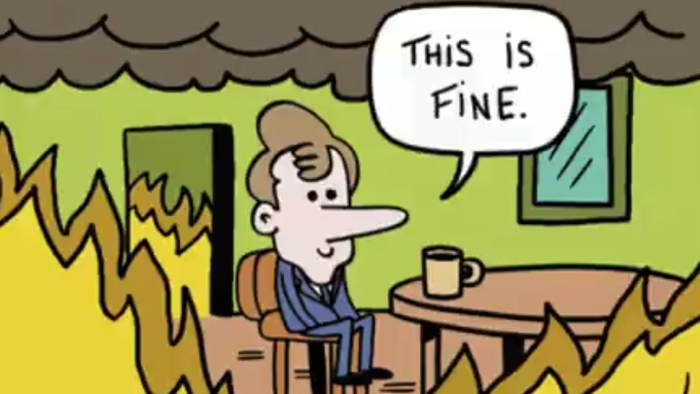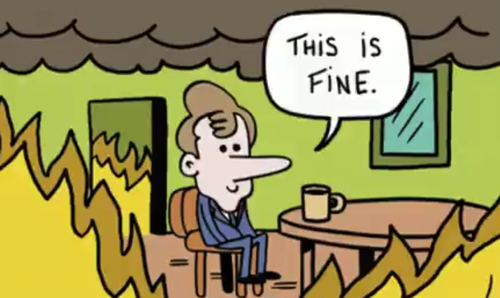


A political crisis is rocking France. President Emmanuel Macron has now given outgoing Prime Minister Sébastien Lecornu until Wednesday night to broker a deal among France's political parties and avert a deeper crisis following Lecornu's abrupt resignation early Monday. Lecornu blamed divisions among parties, including Macron's own centrist minority, for the breakdown in forming a new cabinet.
Macron's move gives him some wiggle room before deciding whether to dissolve parliament and call early elections.
On Monday, as the political turmoil unfolded, UBS analyst Matthew Cowley provided clients with three possible pathways for Macron:
"President Macron faces three scenarios: appointing a new PM, dissolving parliament for legislative elections, or even calling an early presidential election—though the latter remains unlikely."
Bloomberg Economics analysts Antonio Barroso and Jean Dalbard wrote that if Lecornu fails to broker a deal, Macron will be forced to either appoint a new prime minister or call elections. This scenario could result in Marine Le Pen's National Rally:
"If Lecornu fails, Macron will have to appoint a new premier or call early elections — potentially giving the far- right National Rally its best shot at power."
Cowley told clients early about the urgency for Lecornu to reach a budget deal amid Macron's mounting negative sentiment nationwide:
France's President Macron has given Sebastién Lecornu, the future ex-prime-minister, until Wednesday to try to forge a budget agreement with parties in parliament. That seems extremely unlikely to succeed. Macron, who had appointed Lecornu at least in part to deflect public ire over the political impasse away from him, is now back in the eye of the storm. His own party seems increasingly to be distancing itself from the party's founder as Macron's popularity plunges. To be sure, not everything in France is Macron's fault, and yet as president, he's the lightning rod. That doesn't mean he will resign – very unpopular presidents have remained in office and seen out their term. It does raise the likelihood of fresh parliamentary elections, but those are unlikely to solve anything. It's going to be a slow grind for French politics to get out of this rut. On a practical level, there will be no shutdown as, for the most part, the 2025 budget will roll over into 2026.
Cowley continued:
A new poll shows French people blame the entire political system for the country's political crisis, and that in turn suggests fresh elections are unlikely to solve very much as the parliament would probably be just as divided as it is now. According to a poll by Elabe for BMFTV, three out of four people queried said Sébastien Lecornu, was right to have resigned as prime minister given the deadlock, and the same number blamed all political parties for not seeking compromise. Almost half of French people (47%) blame France's President Macron for the political crisis, and 51% believe his resignation would help solve the political impasse. Slightly fewer – 42%– believe general elections for parliament would be the way out. The poll asked which coalition they would support in the event of elections : 28% said they would support the right/far right, 22% the left or far left and 12% would support the centrists. In a boost for the far right, 53% of French people said they would oppose the « replublican front » strategy where centrsits and leftists united to keep them out of power in previous elections.
National Assembly turmoil has already toppled two previous premiers, including Michel Barnier and François Bayrou, over budget disputes. It now threatens to derail a budget agreement ahead of next Monday's deadline. This means the government risks needing emergency measures to avoid a January shutdown. Bond markets are reacting: France's 10-year yield premium over Germany widened to 85 basis points, the highest since the start of the year.
Here is EU equity market commentary via UBS analyst Joe Dickinson:
EuroStoxx is unchanged to start Tuesday. Developments in Europe overnight saw President Macron giving outgoing PM Lecornu 48 hours to negotiate with France's parties in a last-ditch effort to stem the country's political crisis - market expectations for progress remain low.
Lecornu wrote on X, "At the request of the President of the Republic, I have agreed to hold final discussions with the political forces for the sake of the country's stability," adding, "I will tell the Head of State on Wednesday evening whether this is possible or not, so that he can draw all the necessary conclusions."
For Macron to survive, Lecornu would have to forge a coalition between the center-left Socialists and the center-right Republicans, something that seems nearly impossible at the moment, as both remain divided on spending and taxes.
Meanwhile, former French Prime Minister Edouard Philippe told local radio station RTL that Macron should resign: "I'm not for an immediate and brutal resignation … but [the president] must take an initiative."

